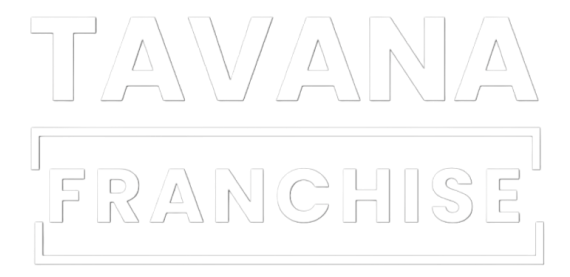Did you know that Turkey has become a hotspot for international franchising? Over 200 foreign franchise brands now operate here. This is thanks to Turkey’s strategic location, young population, and fast-growing economy.
Expanding your business to Turkey can be very profitable. But, you must know the rules for foreign franchising to enter the market smoothly.
It’s vital to grasp Turkey’s franchising laws. This helps foreign investors understand the legal rules and meet registration needs.
Key Takeaways
- Turkey offers a unique opportunity for global franchise brands due to its strategic location and young population.
- Foreign investors must understand local franchising regulations to ensure compliance.
- Registration with Turkish authorities is a necessary step for foreign franchise brands.
- Careful planning is required to navigate Turkey’s legal landscape.
- Understanding local regulations is key to a successful franchise business in Turkey.
Understanding Franchising in Turkey
For foreign investors, grasping the franchising scene in Turkey is key to success. Franchising lets a business use another’s successful model, brand, and trademark. In Turkey, franchising is on the rise, thanks to both local and global brands.
Definition of Franchising
Franchising lets a franchisor share their brand and business model with a franchisee. This way, you can start a business with a tested concept, lowering the risks of starting anew.
The main parts of franchising include:
- The franchisor’s brand and trademark
- A proven business model
- Ongoing support and training
- A contractual agreement outlining the terms and conditions
How Franchising Works
In Turkey, franchising lets you run a business under a well-known brand. You get to use the franchisor’s knowledge and customer base. The process usually involves:
- Selecting a franchisor with a successful business model
- Signing a franchise agreement outlining the terms and conditions
- Receiving training and support from the franchisor
- Operating the business according to the franchisor’s guidelines
Franchise opportunities in Turkey for expats are growing, with many international brands entering. To thrive, understanding the local business scene and following regulations is crucial.
By understanding franchising in Turkey, you can make smart business choices. This way, you can take advantage of the increasing demand for franchise opportunities.
Legal Framework for Franchising
Foreign investors need to know the legal rules for franchising in Turkey. This ensures they follow the law and succeed. The Turkish legal system uses codes like the Turkish Commercial Code and the Code of Obligations to guide franchising.
Overview of Turkish Franchise Law
Turkish franchise law is built on contract law. It focuses on the deal between the franchisor and the franchisee. The Turkish Commercial Code sets rules for business, including franchising. It covers things like how businesses operate, financial reports, and who makes decisions.
The Code of Obligations adds to this. It makes sure franchise agreements are legally strong and can be enforced.
Key Regulations Impacting Franchise Agreements
Franchise agreements in Turkey must follow important rules:
- Franchisors must share detailed info with potential franchisees.
- Agreements must clearly state what each side can and must do.
- Franchisors must protect their trademarks and intellectual property under Turkish law.
By knowing and following these rules, foreign franchisors can run successful and legal businesses in Turkey.
Types of Business Structures Available
As a foreign investor in Turkey, you have many business structures to pick from. The right choice affects your liability, taxes, and how easy it is to run your franchise.
Sole Proprietorship vs. LLC
Foreign investors often choose between Sole Proprietorship and Limited Liability Company (LLC) for franchising in Turkey. A Sole Proprietorship is simple, with one person owning the business. But, it doesn’t protect you from liability, which is a big drawback for big investments.
An LLC, on the other hand, offers liability protection and is better for franchising. It’s more flexible in management and taxes. LLCs need a minimum amount of money to start and follow corporate tax rules.
| Business Structure | Liability Protection | Taxation | Minimum Capital Requirement |
|---|---|---|---|
| Sole Proprietorship | No | Personal Income Tax | No |
| Limited Liability Company (LLC) | Yes | Corporate Tax | Yes |
Setting Up a Franchise in Turkey
To start a franchise in Turkey, first pick a business structure. Then, register your business with Turkish authorities. You’ll need licenses, tax registration, and a Turkish bank account.
A Turkish Ministry of Trade report says foreign investors get tax breaks and subsidies for certain sectors.
“Setting up a franchise in Turkey can be tough, but with the right help, foreign investors can get through it.”
Understanding Turkey franchising regulations for international investors is key. This includes following local laws, making contracts, and protecting intellectual property.
After setting up, create a franchise agreement that follows Turkish laws. This agreement should cover the terms and duties of both sides.
- Research and choose a suitable business structure.
- Register your business with the relevant authorities.
- Obtain necessary licenses and permits.
- Draft a compliant franchise agreement.
Franchise Registration Process in Turkey
Foreign franchisors wanting to enter Turkey must understand the franchise registration process. Knowing the legal steps is key for success.
Step-by-Step Guide to Registration
To register a franchise in Turkey, follow these steps:
- Obtain necessary permits and licenses.
- Register your franchise with the relevant Turkish authorities.
- Comply with specific documentation requirements for foreign investors.
Key Steps in Detail
- Preparation: Make sure your franchise model fits Turkish laws.
- Application: Send in your application with all needed documents.
- Registration: Register your franchise with the Trade Registry Office.

Required Documentation for Foreigners
Foreign franchisors need to provide certain documents. These include:
| Document Type | Description |
|---|---|
| Franchise Agreement | A copy of the franchise agreement outlining the terms and conditions. |
| Company Documents | Articles of incorporation, business licenses, and other relevant company documents. |
| Trademark Registration | Proof of trademark registration in Turkey. |
Legal experts stress the importance of following local regulations. Ensuring all documents are correct is vital for foreign franchisors.
“The franchise registration process in Turkey is designed to ensure that both local and foreign investments are conducted fairly and transparently.”
Rights and Obligations of Franchisors
If you’re a franchisor looking to grow in Turkey, knowing your rights and duties is key. Turkey is a great place for franchises, but you must understand the legal and operational rules to succeed.
Key Responsibilities of Franchise Owners
As a franchisor, you have important duties to your franchisees. You must give them thorough training and ongoing support. This ensures they follow your business model.
You also need to provide marketing materials and keep your brand’s image strong. Plus, you must make sure your franchisees follow Turkish laws and regulations. It’s important to stay informed about legal changes that could impact your business.
Understanding Territories and Exclusivity
Territorial exclusivity is a big deal in franchise agreements. You need to decide where your franchisee can work and if they have exclusive rights there. This prevents conflicts and keeps the market competitive.
When you write your franchise agreement, be clear about territorial exclusivity. Say what area it covers and what might end it. This protects your brand and gives your franchisees a stable place to work.
Franchise Agreements: What to Include
When you think about franchising in Turkey, knowing what a franchise agreement should have is key. A good agreement is the base of a strong franchise partnership. It clearly states what each side must do.
Essential Clauses in Franchise Contracts
A franchise agreement must have important parts to keep both sides safe. These parts usually talk about:
- Royalty fees and how they’re paid
- Trademark use and intellectual property rights
- Where the franchise can operate and if it’s exclusive
- How to end the agreement and solve disputes
- What training and support the franchisor must give
For example, the agreement might say the franchisor must train and support the franchisee. The franchisee must follow the brand rules and share sales info often.
| Clause | Description | Importance |
|---|---|---|
| Royalty Fees | How much of the sales money goes to the franchisor | High |
| Trademark Licensing | Let’s the franchisee use the franchisor’s trademarks and branding | High |
| Territorial Rights | Where the franchisee can operate without competition | Medium |
| Termination Clauses | When the agreement can end | High |
Common Mistakes to Avoid
When making a franchise agreement, avoid common mistakes. These can cause problems or misunderstandings. Some mistakes include:
- Not clearly saying who does what
- Missing or unclear important parts
- Not having a good way to solve disputes
- Not following local laws about franchising
To avoid these issues, get help from a lawyer who knows Turkish franchise law. They can make sure your agreement is complete, follows local rules, and protects your rights.
Intellectual Property Considerations
Protecting your brand’s intellectual property in Turkey is key for foreign franchisors. It’s vital to keep trademarks, trade secrets, and other IP safe. This helps keep your brand strong and stops others from using it without permission.
Protecting Trademarks in Turkey
Registering your trademark with the Turkish Patent and Trademark Office is crucial. You need to apply and show your trademark is unique. Also, check if your trademark is new and doesn’t conflict with others.
Key steps for trademark registration include:
- Conducting a comprehensive trademark search
- Preparing and submitting your application
- Responding to any office actions or objections
- Maintaining your registration through periodic renewals
Licensing Issues for Foreign Brands
Licensing agreements must follow Turkish law to protect your IP. They should clearly state how and where your brand can be used. Also, make sure they don’t break Turkish competition law or other rules.
Considerations for licensing agreements:
- Defining the scope of the license and permitted use
- Establishing quality control measures
- Including provisions for termination or renewal
- Ensuring compliance with local laws and regulations
By understanding and addressing these intellectual property considerations, you can effectively protect your brand and successfully expand your franchise in Turkey.
Financial Aspects of Franchising
Foreign investors looking into franchise opportunities in Turkey need to think about the money side. This includes the costs to start and keep a franchise running. These costs can be split into two main parts: the money needed to begin and the fees and royalties that follow.

Initial Investment Estimates
The amount of money needed to start a franchise in Turkey can change a lot. It depends on the business type, how well-known the brand is, and how big the operation will be. For foreign investors, knowing these costs is key to planning and setting a budget.
Some main parts of the initial investment are:
- Initial franchise fee
- Costs for setting up the business
- Money for premises, equipment, and stock
- Expenses for marketing and training
| Cost Component | Estimated Cost Range |
|---|---|
| Initial Franchise Fee | $10,000 – $50,000 |
| Business Setup Costs | $5,000 – $20,000 |
| Premises and Equipment | $50,000 – $200,000 |
Ongoing Fees and Royalties
After the initial investment, franchisees must pay ongoing fees and royalties. These fees are usually a percentage of monthly sales. They help cover support, marketing, and the use of the brand’s intellectual property.
“The franchising model is built on the principle of mutual benefit, where the franchisor provides the brand and support, and the franchisee contributes through fees and local market expertise.” –
Ongoing fees can change but usually fall in certain ranges:
- Royalties: 5% – 10% of monthly sales
- Marketing fees: 2% – 5% of monthly sales
It’s crucial for foreign investors to understand these financial commitments when exploring franchise opportunities in Turkey. By looking at the initial investment and ongoing fees, investors can make smart choices about their franchising ventures.
Cultural Considerations in Turkey
Adapting your franchise to Turkey’s unique cultural landscape is key to winning over local consumers. Understanding the cultural nuances of the Turkish market can significantly impact your franchise’s performance.
Adapting Your Franchise to Local Tastes
Turkish consumers have distinct preferences when it comes to food, service, and overall shopping experience. To succeed, you must tailor your offerings to meet these local tastes.
- Modify your menu or products to incorporate local flavors and ingredients.
- Train your staff to provide service that meets Turkish expectations for hospitality.
- Ensure your marketing strategies resonate with local cultural values.
For instance, incorporating traditional Turkish cuisine elements into your menu can make your franchise more appealing to local customers.
Building Relationships with Turkish Consumers
Building strong relationships with consumers is vital in Turkey, where personal connections can drive business success.
Key Strategies:
| Strategy | Description | Benefit |
|---|---|---|
| Engage on Social Media | Use platforms popular in Turkey to interact with customers. | Increased brand loyalty |
| Local Events Participation | Participate in or sponsor local events to boost visibility. | Enhanced community presence |
| Customer Feedback | Actively seek and respond to customer feedback. | Improved customer satisfaction |
By understanding and adapting to Turkey’s cultural landscape, you can establish a strong presence in the market.
Ultimately, success in Turkey’s competitive market depends on your ability to balance global brand identity with local cultural sensitivity.
Support and Training Responsibilities
Expanding your franchise into Turkey means you must offer top-notch training and support. As a foreign franchisor, it’s key to have a strong support system. This can greatly affect your franchise’s success in Turkey.
Role of the Franchisor in Training
The franchisor is crucial in training franchisees. They need to know how to run the business well. This includes learning about the business model, how to operate, and marketing strategies.
Good training covers many areas. These include:
- Business operations and management
- Product or service delivery
- Customer service standards
- Marketing and promotional activities
A solid training program gives franchisees the tools they need. It also keeps the franchise network consistent. It’s important for franchisors to invest in quality training materials and experienced trainers to help franchisees succeed.
Continuous Support Obligations
After the initial training, franchisors must keep supporting their franchisees. This ongoing support is key for solving problems, adapting to market changes, and keeping the brand strong. Support can include:
| Support Type | Description | Benefits |
|---|---|---|
| Operational Support | Help with daily operations, solving problems, and fixing issues. | Keeps business running smoothly, cuts downtime. |
| Marketing Support | Help with local marketing, promotions, and brand management. | Boosts brand visibility, increases sales. |
| Strategic Support | Guidance on long-term plans, market analysis, and staying competitive. | Helps franchisees stay ahead, adapt to market shifts. |
Experts say, “Continuous support is the key to a successful franchise. It helps franchisees face challenges and reach their goals.” Offering strong ongoing support is not just a duty. It’s crucial for your franchise’s success in Turkey.
By focusing on thorough training and ongoing support, you can help your franchise in Turkey thrive. This will also increase your investment return.
Common Challenges for Foreign Franchisors
The Turkish franchising scene is full of hurdles for foreign investors. If you’re thinking about bringing your franchise to Turkey, knowing these challenges is key to success.
Navigating Regulatory Hurdles
One big challenge is dealing with Turkey’s complex rules. Franchising laws in Turkey for foreigners are detailed and need a good grasp of local laws.
- Ensuring compliance with Turkish franchise laws
- Understanding the registration process for foreign franchisors
- Adhering to contractual requirements specific to franchise agreements
To get past these rules, team up with local legal pros who know Foreign investor franchising rules Turkey. They can help shape your franchise deal to fit local laws.
Understanding Market Competition
Another challenge is grasping the competitive scene. Turkey’s market is fierce, with many brands fighting for space.
- Conducting thorough market research to understand consumer preferences
- Analyzing competitors to identify market gaps
- Developing a unique selling proposition (USP) to differentiate your brand
As a foreign franchisor, you must tweak your model to fit local tastes but keep your brand’s essence. This balance is crucial for success.
By tackling these challenges head-on and planning strategies, you can make your franchise thrive in Turkey.
Resources and Support for Foreign Franchisees
Looking to start a business in Turkey as a foreign franchisee? You have many resources to help. Government programs and industry groups offer support and advice.
Government Initiatives and Industry Associations
Check out government-backed programs and industry groups for franchise opportunities. They provide insights into the Turkish market. This helps you understand franchising in Turkey better.
Finding Legal Assistance
It’s important to know the legal rules for franchising in Turkey if you’re not a citizen. Find a lawyer who knows Turkish franchise law well. They can help you follow the rules and protect your business.
With these resources and support, you can start and grow your franchise in Turkey. The country’s market is growing, and you can benefit from it.
